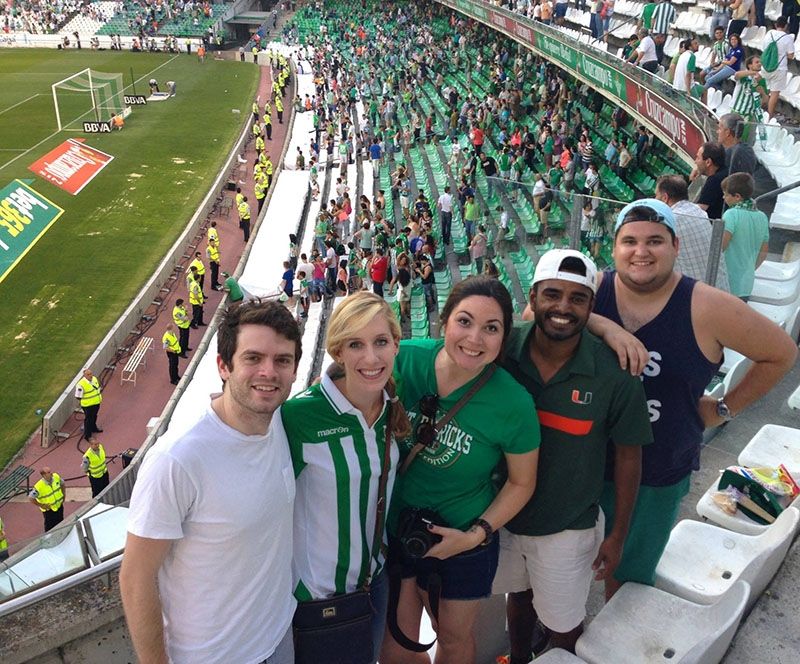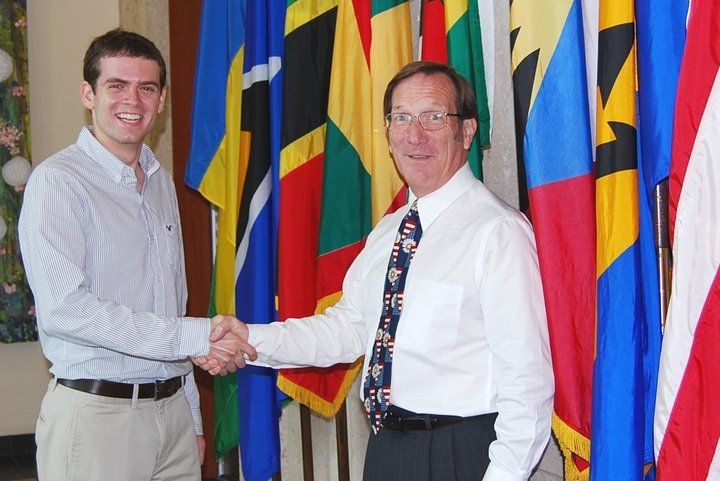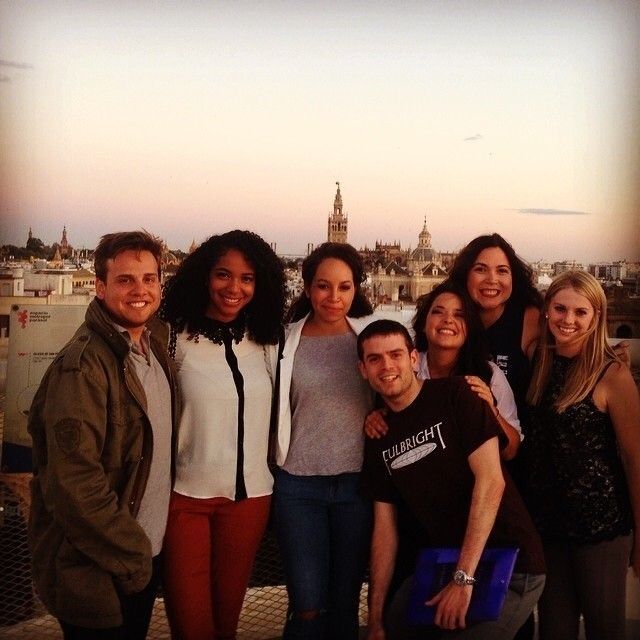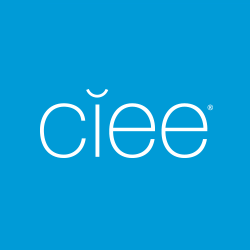Ask an Alum: Applying for a Fulbright Research/Study Scholarship
Stephen Okin is an alum of multiple CIEE programs: he participated in three sessions of the CIEE Summer Language & Culture program in Seville, Spain, as well as the Teach in Spain and TEFL certification programs in 2014. Stephen is currently an MA candidate in the Security Studies Program at Georgetown University, where he also works as a research assistant. In 2010-11, he received a Fulbright scholarship through the U.S. Student Program to pursue a master’s degree in Integration Studies at the University of the West Indies’ Cave Hill campus in Barbados.

(Photo credit for all photos: Stephen Okin)
CIEE: Why did you choose to apply for a Fulbright scholarship?
SO: I never studied abroad as an undergraduate, instead choosing to spend a semester at Hamilton’s program in Washington, D.C. As such, when I was looking at my post-graduation options, I had a strong urge to travel and see the world like so many of my classmates had done before. On top of this desire, I had a long-standing interest in Western Hemisphere affairs and knew that going overseas would allow me to experience the region first hand as well as help me professionally in the years to come. These two threads, however, wouldn’t have led me to the Fulbright if it hadn’t been for the counsel of a friend at the State Department, who told me about his experience as a Fulbright scholar and urged me to apply.
CIEE: How did your CIEE program/experience inform or influence your decision to apply for Fulbright?
SO: I completed my Fulbright before going on my CIEE adventures. However, my experience in Barbados only fed my travel bug and ultimately led me to CIEE. During my time in the Caribbean, I discovered I enjoyed learning about new cultures and the challenge of being “outside my comfort zone.” Moreover, I found the colonial history between Europe and the region fascinating which, when coupled with my desire to learn another language, ultimately caused me to choose Spain as my next destination.
CIEE: What was the focus of your Fulbright scholarship?
SO: My Fulbright experience was a bit unconventional. Most grant recipients right out of their undergraduate studies either teach English abroad or pursue a specific research proposal that they complete in collaboration with a local partner in-country. For my grant, I enrolled in a Masters program in Integration Studies at the University of the West Indies. The program examines regional integration initiatives around the world, with a strong focus on the Caribbean’s two integration projects: the Caribbean Community (CARICOM) and the Organization of Eastern Caribbean States (OECS). As part of the program’s requirements, I completed a 3-month internship with the Regional Security System (RSS), which is a regional security organization comprising Barbados and the OECS member states. During my time there I wrote a report on the RSS and citizen security in the Caribbean and presented it at the United Nations Development Programme’s consultation event for the 2012 Caribbean Human Development Report in St. Lucia in September 2011.

CIEE: What advice would you give to CIEE alums interested in applying for a Fulbright scholarship?
SO: The primary thing to remember is that the Fulbright program was designed to facilitate cultural exchange between the United States and other countries. Ideal candidates, therefore, will embrace the opportunity to act as an ambassador between two cultures. As far as the actual application process goes, I can only speak to the process of applying for a research/study grant. In my experience, the most important part about applying for a Fulbright is making a case for why whatever it is you want to do in your chosen country can only be done there. For example, no one gets a Fulbright to go study French in France; you can learn French anywhere. A more realistic proposal would be to go conduct field research on the impact immigrants are having on the French language today and what that means for French identity in the 21st century. What’s more, your proposal must make sense given your background. For instance, the above example would make no sense coming from an applicant like me because I have never studied French and nothing in my history suggests an interest in France, linguistics, or identity theory. You have to pick a project that is an obvious continuation of previously expressed interests. Last, you should explain how completing your project will support Fulbright’s mission statement of cultural exchange after you finish your grant. This could be by advancing your professional interests (such as teaching or working on the subject); by continuing your studies (it motivates you to pursue an advanced degree); or by volunteering for a related cause/staying engaged in some other manner. There’s obviously a lot more that goes into a successful application, but satisfy these three things and you’re well on your way!
--
If you’re a CIEE alum, check out our LinkedIn group to connect with alumni in your field or city, including over 100 past and current Fulbright scholars.

